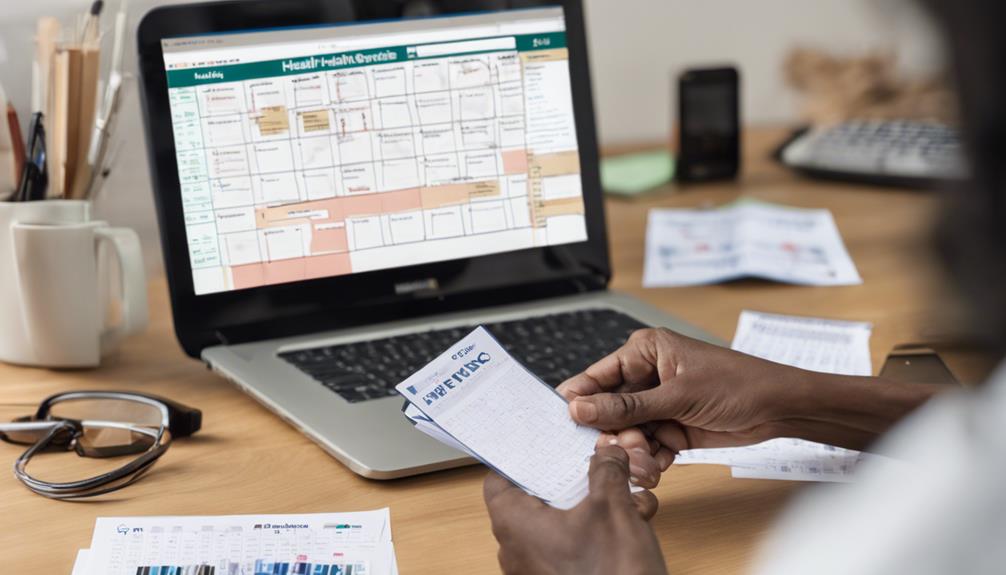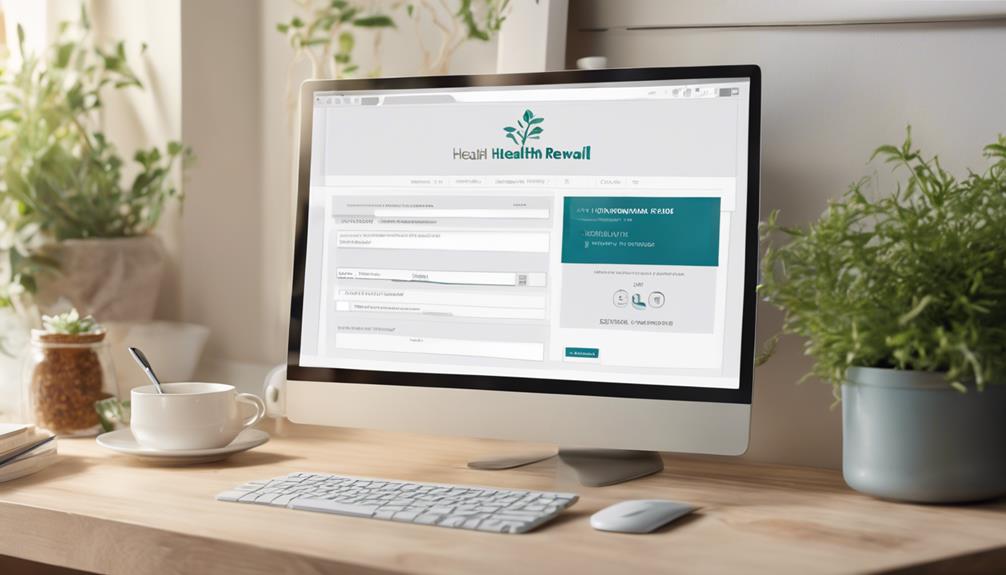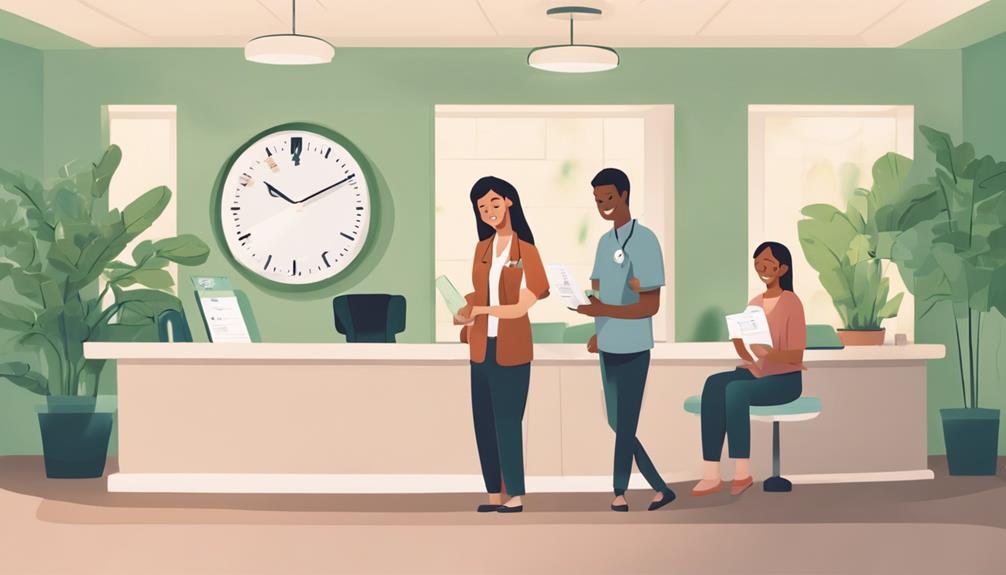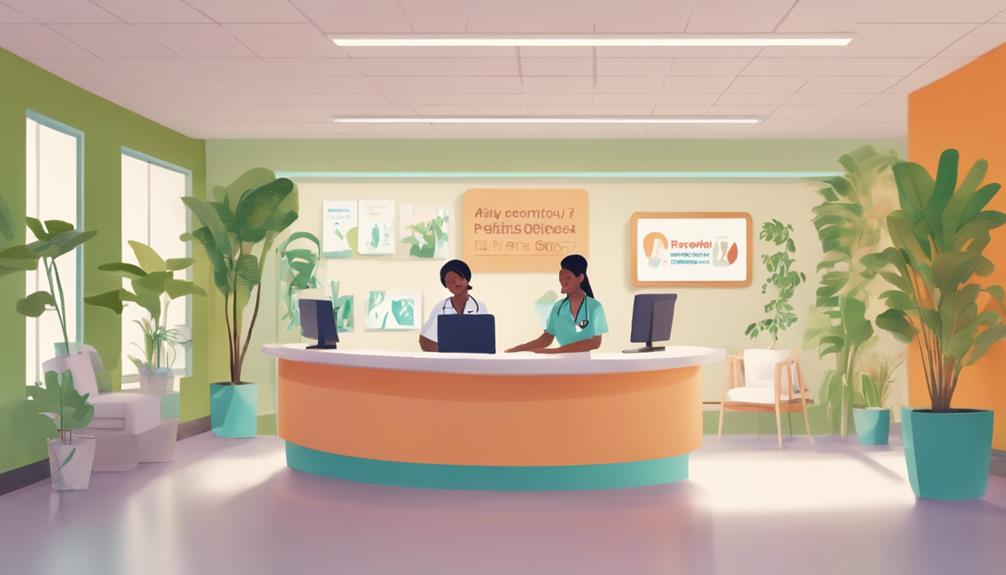You can renew your health card at local government service centers and health facilities dedicated to this process. Making an effort to renew guarantees you maintain access to essential healthcare benefits, which is critical for ideal health outcomes. Check eligibility criteria, which often include proof of residency and identity to minimize complications. Many locations offer online renewal options, enhancing convenience and reducing processing times considerably. By understanding the procedures and necessary documents, you can streamline your experience. Discovering further details about potential obstacles and effective strategies can enhance your renewal journey dramatically.
Understanding Health Card Renewal

Understanding health card renewal is important for ensuring uninterrupted access to healthcare services, as it directly impacts both individual health outcomes and the efficiency of public health systems.How Can I Become A Yoga TeacherWhat To Bring To Hot Yoga
When you renew your health card, you're not just maintaining a piece of identification; you're securing your eligibility for essential health benefits. These benefits often encompass preventive care, emergency services, and ongoing treatments necessary for chronic conditions.
The eligibility criteria for health card renewal can vary based on your location and specific healthcare policies. Generally, you must demonstrate continued residency, income level, and sometimes health status. Failing to meet these criteria could result in a lapse in coverage, ultimately affecting your access to necessary medical services.
Data shows that individuals who maintain their health cards experience better health outcomes, as they can more readily access preventative care and timely interventions.
Additionally, a streamlined renewal process enhances the efficiency of public health systems, reducing administrative burdens and ensuring that resources are allocated effectively.
Consequently, staying informed about your health card renewal isn't just a personal responsibility; it's a significant component of public health strategy.
Required Documents for Renewal
To successfully renew your health card, you'll need to gather specific documents that demonstrate your eligibility and compliance with local healthcare regulations.
First, check your current card's renewal frequency; this often dictates how frequently you must provide documentation. Typically, you'll need proof of identity, such as a government-issued ID, and residency verification, which could include a utility bill or lease agreement.
Next, confirm that all documents are valid and not expired. Document validity is vital, as outdated paperwork can lead to delays or rejections in the renewal process. Some jurisdictions may also require proof of income or employment to assess eligibility for specific programs or subsidies. If you're a dependent, you might need additional documentation linking you to the primary cardholder.
Additionally, it's wise to keep copies of all submitted documents for your records. This not only helps track your renewal but also serves as a reference if any discrepancies arise.
Renewal Process Explained

To guarantee a smooth health card renewal, you need to follow a structured process that includes a checklist of required documents.
By adhering to a step-by-step procedure, you can minimize delays and streamline your application.
Understanding these elements not only eases the renewal experience but also guarantees compliance with current health policies.
Required Documents Checklist
When renewing your health card, you'll need to gather specific documents that verify your identity and residency status. This checklist is vital in determining your health card eligibility. Typically, you'll need a government-issued photo ID, such as a driver's license or passport, to confirm your identity. Additionally, proof of residency is important; documents like utility bills or lease agreements can serve this purpose.
It's important to note that some jurisdictions may require additional paperwork, such as Social Security numbers or tax documents, to guarantee thorough verification. Failure to provide the correct documentation may delay your renewal process or result in additional renewal fees. Checking your local health department's website can give you precise requirements tailored to your area.
Being proactive in gathering these documents not only expedites your application but also reduces the likelihood of encountering issues that could affect your health card eligibility. Always double-check the latest guidelines to verify compliance, as policies can shift over time.
Step-by-Step Procedure
Understanding the step-by-step procedure for renewing your health card is vital for guaranteeing a seamless shift and maintaining your access to healthcare services.
Start by verifying your eligibility for renewal, which typically requires you to have an active health benefits plan. Next, check the renewal timeline, as many jurisdictions require you to initiate the process several months before your card expires.
Gather the necessary documents, such as proof of residency and identification, as this will streamline your application. Once you have everything in order, fill out the renewal application accurately. If you're submitting online, make sure you follow the digital guidelines to avoid delays.
After submission, monitor your application status through the relevant health authority's portal. This step is significant, as it allows you to address any issues promptly.
Upon approval, you'll receive your renewed health card, reinforcing your access to essential health benefits.
Key Locations for Renewal
Key locations for health card renewal include government service centers, designated healthcare facilities, and online platforms, each offering specific advantages tailored to meet diverse community needs.
When you visit government offices, you'll find trained personnel ready to assist you with the renewal process, ensuring that you understand the requirements and necessary documentation. This face-to-face interaction can enhance clarity, particularly for first-time renovators.
Local health centers also play an essential role. These facilities often provide dedicated services for health card renewals, allowing you to handle multiple health-related tasks in one visit. By consolidating services, local health centers improve efficiency and accessibility, helping you avoid unnecessary delays.
Moreover, the strategic locations of both government offices and local health centers can greatly impact participation rates in health card renewals. Research indicates that proximity to these facilities correlates with higher renewal rates, emphasizing the importance of accessible services in public health policy.
Understanding these key locations not only streamlines your renewal process but also empowers you to make informed decisions about your healthcare access.
Online Renewal Options

Online renewal options for health cards streamline the process, allowing you to efficiently submit necessary documentation from the comfort of your home while minimizing wait times and in-person visits.
The integration of digital health solutions into the renewal process reflects a significant policy shift aimed at enhancing accessibility and convenience for users.
By utilizing online platforms, you're not only saving time but also contributing to a more efficient administrative system. Studies indicate that digital renewal processes can reduce processing times by up to 50%, enabling faster access to essential healthcare services.
Additionally, the implementation of automated renewal notifications guarantees you're informed well in advance of your card's expiration, prompting timely action and reducing lapses in coverage.
These innovations in the renewal process are particularly vital in a post-pandemic landscape, where many individuals prefer digital interactions over traditional methods.
The focus on digital health isn't merely about convenience; it represents a broader initiative to modernize healthcare delivery systems, making them more responsive to the needs of the population.
Embracing these online options empowers you to manage your health card renewal efficiently and effectively.
Common Issues and Solutions
Maneuvering the health card renewal process can present several common issues, from technical glitches during online submissions to discrepancies in personal information that may delay approval.
One significant hurdle arises when applicants fail to meet the eligibility criteria, often due to outdated information or lack of supporting documentation. This misalignment can result in extended renewal timelines, causing frustration for individuals who rely on timely access to healthcare services.
Another common issue is related to the online systems themselves. Technical errors, such as server downtimes or submission failures, can impede your ability to complete the renewal process efficiently. If you encounter these glitches, it's crucial to document your attempts and contact support promptly to mitigate delays.
Furthermore, discrepancies in personal information, whether due to changes in marital status or address, can complicate your application. To circumvent these pitfalls, confirm that all your documents are current and match the information on your health card.
Tips for a Smooth Experience

To guarantee a smooth health card renewal experience, you should start by preparing the required documents, as having everything ready minimizes delays.
Understanding the renewal process is equally vital; it helps you navigate the system efficiently and avoid potential pitfalls.
Prepare Required Documents
Gathering the necessary documents for your health card renewal can greatly streamline the process and reduce potential delays. To guarantee your application is processed efficiently, you'll need to focus on two key components: the application form and proof of eligibility criteria.
Start by obtaining the correct application form, which is often available online or at local health offices. This form requires specific information, including your personal details and previous health card number. Missing or incorrect information can lead to significant delays, so double-check everything before submission.
Next, familiarize yourself with the eligibility criteria set by your local health authority. Common requirements include proof of residency, age verification, and, in some cases, income documentation. Gathering these documents beforehand allows you to address any issues promptly, guaranteeing you're fully prepared when submitting your application.
Consider organizing your documents in a clear, accessible manner. Using a checklist can help you track what you've gathered and what's still pending. By being thorough and proactive in preparing your documents, you'll position yourself for a smoother health card renewal experience.
Understand Renewal Process
Understanding the renewal process is essential for ensuring your health card remains valid and accessible without unnecessary interruptions. To navigate this process effectively, you should familiarize yourself with the eligibility criteria established by your local health authority. These criteria can change based on factors such as income, age, and residency status, so staying informed is vital.
Begin by reviewing the necessary documentation and ensuring all required information is accurate and up-to-date. Missing documents or incorrect details can delay your renewal, potentially affecting your access to critical health benefits.
Utilize available online resources, as many health authorities provide dedicated portals for renewal applications. These platforms often include step-by-step guidance and FAQs, which can simplify your experience.
Additionally, be aware of deadlines; completing your renewal well before your card expires can prevent lapses in coverage. If you're unsure about your eligibility or have questions, don't hesitate to contact customer service for clarification.
Conclusion
In conclusion, managing health card renewal can be straightforward with the right information.
By understanding the required documents and the renewal process, you can minimize delays.
Utilizing online options streamlines your experience, while knowing key locations guarantees you're prepared.
Addressing common issues proactively helps avoid frustration.
Ultimately, staying informed empowers you to maintain your health coverage efficiently, supporting overall public health goals and making sure that you don't miss out on essential services.
